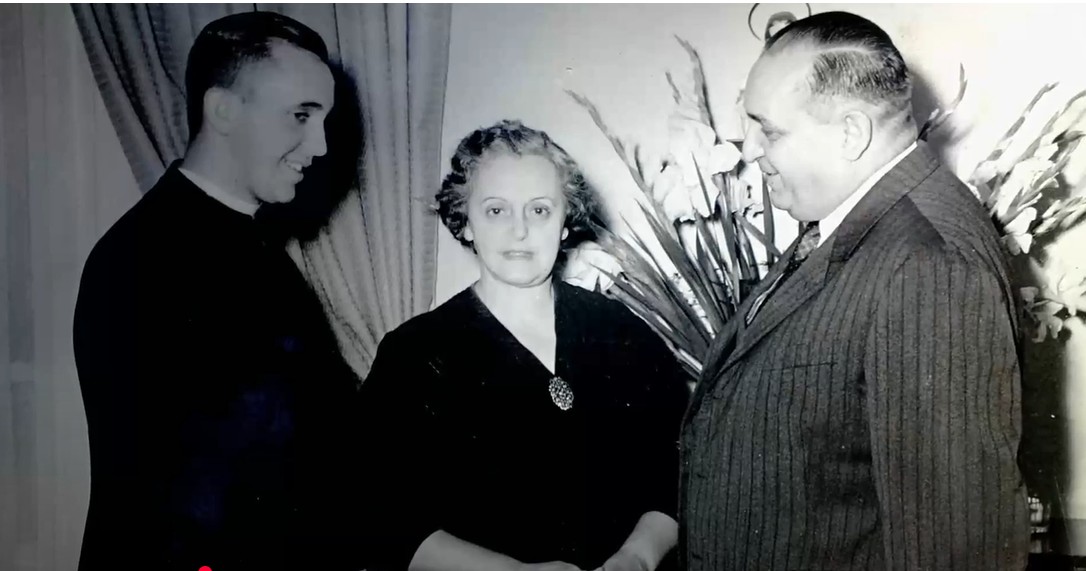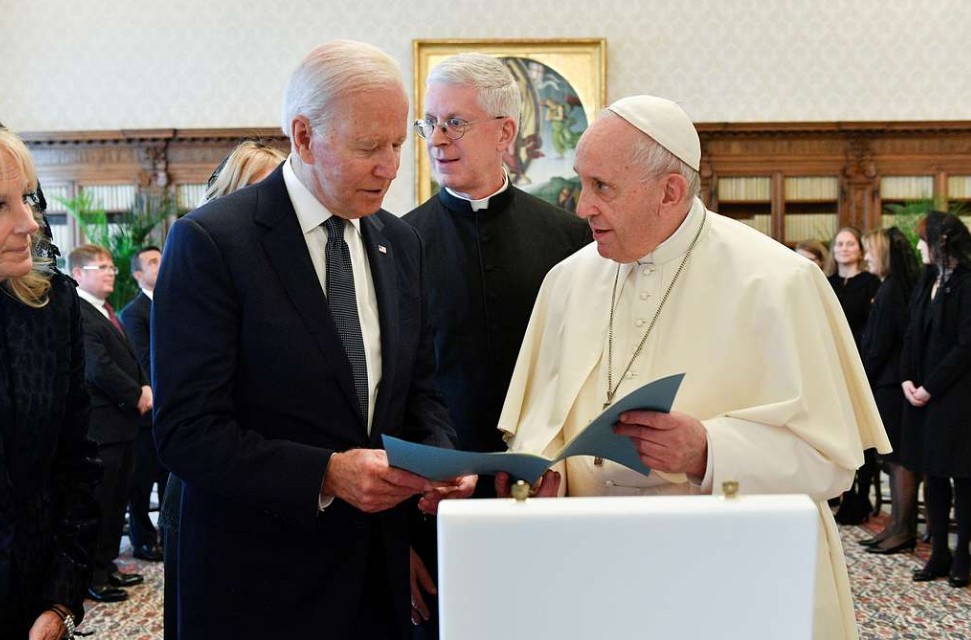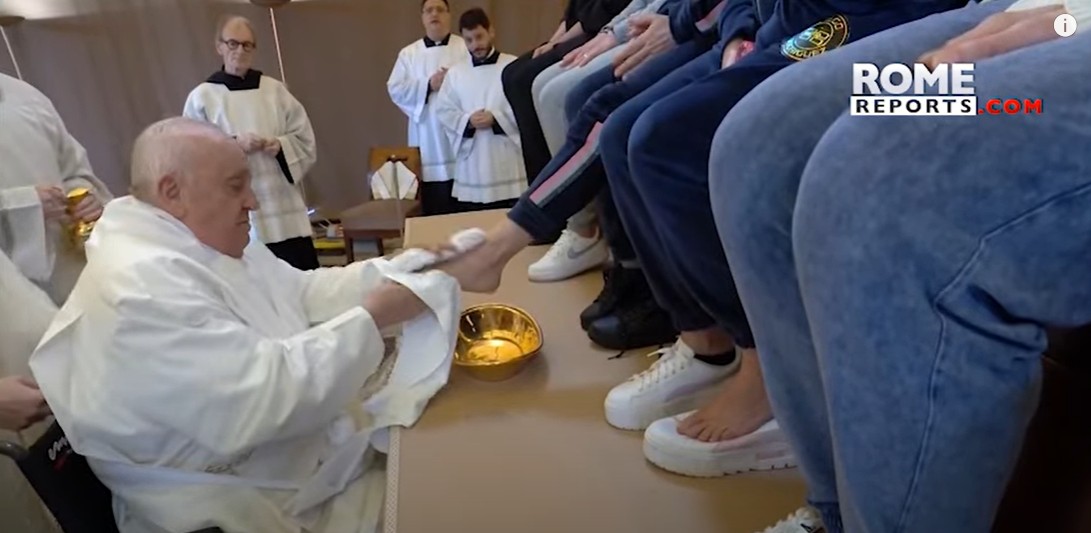Pope Francis has died at the age of 88, after a battle with double pneumonia.
In 2014, a year after his election as pope, a Huff Post article called Pope Francis the greatest social innovator of all time, and he was named Time’s Person of the Year. Throughout his papacy he was accorded countless accolades, but at the same time, he was the subject of bitter criticism.
While many people admire his humility, focus on social justice, and efforts to reform the Church, others have criticized his stances on various issues, including his handling of sexual abuse cases and his views on divorce and remarriage. Certainly, he has been one of the most political popes since the Renaissance—and this at a time when liberalism is on the wane in the Western world.
Born in Buenos Aires, Argentina, Jorge Bergoglio had a varied career in his life. A bouncer and a janitor as a young man before training to be a chemist and working as a technician in a food science laboratory, after a serious illness he was inspired to join the Jesuits in 1958. He was ordained a Catholic priest in 1969, was the Jesuit provincial superior in Argentina from 1973 to 1979, became the Archbishop of Buenos Aires in 1998, and was created a cardinal in 2001 by Pope John Paul II before reaching the pinnacle of authority in the Catholic Church as Pope Francis in March, 2013.

To be sure, he arrived on the scene in a burst of hope and anticipation that the hoary old Catholic Church, so set in its arcane ways, would be polished to a new shine of reform. Among the more impressive early achievements his supporters pointed to his global campaign against hunger and in support of the poor and marginalized, and his tireless efforts to strengthen the environmental movement–especially his work to raise awareness of climate change in the face of denialist forces. He has denounced capitalism in scathing terms, “There seems to be a growing notion that the poor are not only responsible for their condition, but that they represent an intolerable burden for an economic system focused on the interests of a few privileged groups,” he commented.

He was the first pope from the Americas and the first Jesuit pope. His pontificate was marked by a focus on themes such as mercy, tenderness, pastoral theology, care for creation and dialogue with secularization. He reformed the Roman Curia, created many new cardinals from different parts of the world, convened synods on the family, youth and the Amazon region, issued landmark documents such as Evangelii Gaudium, Laudato Si’ and Amoris Laetitia, and visited many countries, especially those on the peripheries—literal and figurative. He also faced challenges such as the sexual abuse crisis, financial scandals, opposition from some conservative sectors of the church and health issues. He expressed a sense of his pontificate being brief and did not rule out the possibility of resigning like his predecessor Benedict XVI. And though the latter never became a reality, it reaffirmed resignation as a very real possibility for future popes.
Pope Francis was incredibly savvy about the power of communication in a connected world and made superb use of social media. In addition to YouTube videos, this Pope tweeted @Pontifex. When he washed the feet of a Muslim woman in prison, he knew that image would hit the blogosphere and go viral. “Francis is altering radically how a Pope communicates change. Speeches and documents? Yes. Pictures worth a thousand words at a gazillion bites a minute? That, too,” writes Tiziana Dearing.

Then there is the fact that that in today’s world the privileges enjoyed by members of elitist systems such as the monarchy and the papacy are wildly anachronistic and certainly don’t play well with the public. Pope Francis perceived this and simplified– as much as he could—the organizational structure of the papacy, streamlining its hierarchy and shaking up his management team.
On a personal level, Francis rejected the splendor of the Vatican palace; from the start he did not want to move out of the Casa Santa Marta, the residence located next to St. Peter’s Basilica that was built to house clergy and cardinals visiting the Vatican, where he had been living before being elevated to the papacy. Archbishop Georg Gänswein, secretary of Pope Benedict XVI, recounts that after weeks of trying to convince him of that necessity he eventually gave up when Francis replied: “I need to live among people, and if I lived alone, maybe a little isolated, it wouldn’t do me any good. ” He continued to live in a suite in Casa Santa Marta, despite all protestations.
As a working Pope, Francis has emphasized a mission of love, empathy and the call to get “bruised, hurting and dirty” serving the poor and marginalized. He established the World Day of the Poor in his apostolic letter Misericordia et misera, issued in 2016 at the end of the Church’s Jubilee Year of Mercy. “At the conclusion of the Jubilee of Mercy, I wanted to offer the Church a World Day of the Poor, so that throughout the world Christian communities can become an ever-greater sign of Christ’s charity for the least and those most in need,” the pope wrote in his first World Day of the Poor message in 2017.
Yet in his efforts to modernize, simplify and democratize the Church, Francis has experienced some blatant failures.
Despite the grandiloquent praise for women, there has been little progress made for them in the Church. He has upheld the Catholic Church’s ban on ordaining women as priests but has provided women with greater say in decision-making roles in the church and has appointed several women to high-ranking Vatican positions.
Regarding the LGBTQ+ community, he has been somewhat ambiguous, saying that homosexuality is a sin, but not a crime, calling anti-gay laws “unjust” and saying that we must work to put an end to them. But he has not relented in calling it a sin.

The tremendous scandal of pedophile priests has continued to roil the Catholic Church, with no solution in sight. Francis’ position in the end has remained quite ambivalent, while he has called it a tragedy, he has also said that sexually abusive priests are “children of God” who must be loved as well as “enemies” who should also be punished. “It’s not at all easy,” the Pope said. “How can we get close, how can we speak to abusers for whom we feel disgust? Yes, they too are children of God, but how can we love them? It’s a very tough question.” One that has remained unanswered and unresolved.
He has been an outstanding advocate for the stewardship of the environment. What started as a quasi-mystical nod to St. Francis, patron saint of ecology and animals, quickly morphed into a well-constructed strategy to bring the world’s 1.2 billion Catholics into alignment over humanity’s role in causing climate change. On June 18, 2015, he published Laudato Sii’: On Care for Our Common Home, a landmark encyclical, or pastoral letter, to the entire Catholic congregation.
In the end, like all leaders, Francis knew the headiness of success and the dejection of failure, but he will most likely be remembered for his willingness to shake things up–revisiting ossified ideas of an ancient and creaking organization. And much like his namesake, with his focus on the meek and the disenfranchised of the Earth, as the “friend of the poor”.










